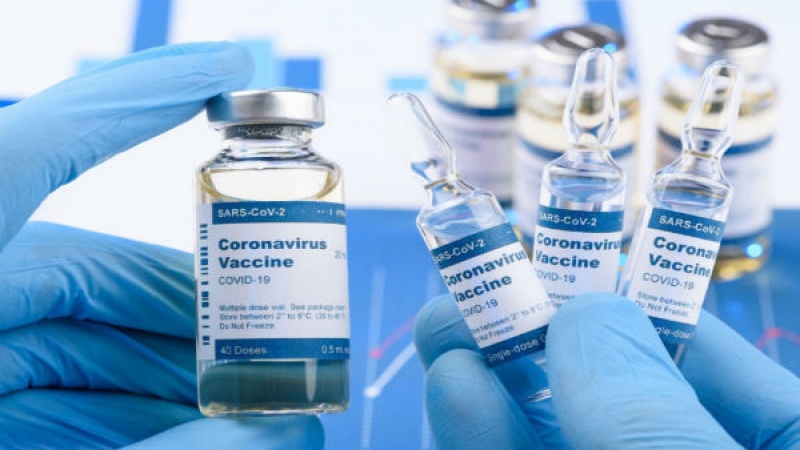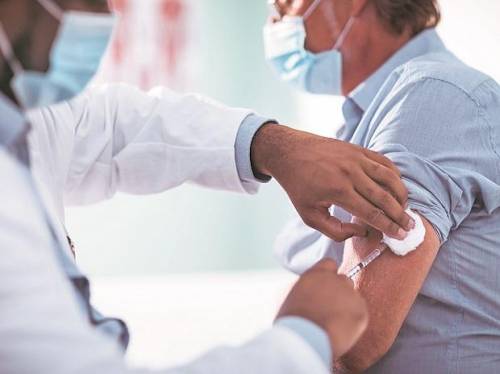Covaxin approval row: How India approves vaccines explained
Approval was restricted and conditional on Union Health Minister Harsh Vardan announcing that those receiving Covaxin injections would be monitored in the same
- by B2B Desk 2021-01-06 05:54:29
The restrictive emergency approval given to the Covid-19 vaccine developed by Bharat Biotech on January 3 has caused a sensation among many experts who have questioned the government's decision. Bharat Biotech has applied for permission to obtain its vaccine, Covaxin, a complete inactivated vaccine against the Virion coronavirus that it has developed in collaboration with the Indian Council for Medical Research (ICMR) and the National Institute of Virology (NIV) in Pune.
Approval was restricted and conditional on Union Health Minister Harsh Vardan announcing that those receiving Covaxin injections would be monitored in the same way as volunteers in clinical trials. Several industry experts expressed surprise at the decision, pointing that Covaxin clinical trial data had not been released.

So how does India approve vaccines?
While the science of vaccine development is global, the regulatory procedure for their use and licensing varies from country to country. In India, clinical trials and approval of new drugs, including vaccines, are subject to the New Drugs and Clinical Trials Rules that were notified in March 2019.
Under normal circumstances, vaccine approval follows these steps:
- Identification and development of a suitable vaccine strain that is safe and immune.
- Complete characterization of the vaccine strain in laboratory experiments.
- Preclinical studies in small animals such as mice, rabbits, guinea pigs, etc. to determine safety and dosage regimen.
- Preclinical studies in large animals to determine safety, preventive efficacy, potential dose, and formulation.
- The first phase of human clinical trials in less than 100 people to demonstrate the safety of the vaccine.
- The second phase of human clinical trials with less than 1,000 individuals to determine immunogenicity or immune protection.
- Third-stage human clinical trials to determine effectiveness. The numbers range from several thousand. Upon successful completion of the third phase studies, regulatory approval is granted.
Phase IV human clinical trials refer to post-marketing surveillance studies, the data of which is analyzed for long-term decision making.
A key aspect of granting approval for a vaccine or medicine in India is the requirements for clinical trials to take place in the country, from stage I to stage III.

What is an emergency use permit?
This term is not used in the 2019 Indian vaccine approval rules. This term became popular after its use in the United States. However, the Indian Rules have a window for "expedited approval" in "special situations". The current Covid-19 pandemic is one of those special cases.
The 2019 rules state that “an expedited approval for a new drug [read the vaccine] may also be granted if it is intended to treat a serious or life-threatening condition or a country-specific related disease, and treats medical conditions that have not to compliment.
There is another special requirement for rapid approval of the vaccine if the results of the second phase shows "significant efficacy".
Here's what the 2019 rules say: "If the observed efficacy of a specific dose is observed in the second phase of clinical trials of a new experimental drug in meeting the unmet medical needs of a serious and life-threatening disease in the country, then the case can be considered for marketing approval by the Central licensing authority based on data from phase II clinical trials. "
Who takes that decision?
The final authority for granting approval for a vaccine or other drug rests with the CDSCO. It is chaired by the Drug Controller General of India (DCGI). CDSCO operates under the Union Ministry of Health and Family Welfare.
What CDSCO has said about the Covaxin case?
On January 3, DCGI issued a statement saying that Covaxin "has been developed on the Vero cell platform, which has a proven track record of safety and efficacy in the country and around the world."
DCGI said Covaxin developer Bharat Biotech has shared "safety and immunity data" from its animal trials, including "challenge studies in non-human primates (Rhesus macaques) and hamsters" with drug regulator CSDSCO.
Regarding clinical trials in humans, DCGI said phases I and II "have shown that the vaccine is safe and provides a strong immune response." Citing phase 3 data from some 22,500 participants, the drug regulator said: "It has been discovered to be safe as per the data available till date.
Also Read: Steps to take to make sure your money, investments are available and accessible when needed
POPULAR POSTS
Loan EMIs to Drop as RBI Slashes Repo Rate - Full MPC December 2025 Highlights
by Shan, 2025-12-05 11:49:44
Zoho Mail vs Gmail (2025): Which Email Platform Is Best for Businesses, Startups, and Students?
by Shan, 2025-10-09 12:17:26
PM Modi Launches GST Bachat Utsav: Lower Taxes, More Savings for Every Indian Household
by Shan, 2025-09-24 12:20:59
$100K H-1B Visa Fee Explained: Trump’s New Rule, Clarifications & Impact on Indian Tech Workers
by Shan, 2025-09-22 10:11:03
India-US Trade Deal Soon? Chief US Negotiator Arrives in Delhi as Talks Set to Begin Tomorrow
by Shan, 2025-09-15 11:54:28
Modi Meets Xi: Trump’s Tariffs, Strategic Autonomy, and the Future of Asia’s Power Balance
by Shan, 2025-09-03 06:40:06
Google Claims Gemini AI Uses Just ‘Five Drops of Water’ Per Prompt, Sparks Debate
by Shan, 2025-08-22 12:34:27
RECENTLY PUBLISHED

Pine Labs IPO 2025: Listing Date, Grey Market Premium, and Expert Outlook
- by Shan, 2025-11-05 09:57:07

The Agentic Revolution: Why Salesforce Is Betting Its Future on AI Agents
- by Shan, 2025-11-05 10:29:23

Top 10 Insurance Companies in India 2026: Life, Health, and General Insurance Leaders Explained
- by Shan, 2025-10-30 10:06:42

OpenAI Offers ChatGPT Go Free in India: What’s Behind This Big AI Giveaway?
- by Shan, 2025-10-28 12:19:11

Best Silver Investment Platforms for 2025: From CFDs to Digital Vaults Explained
- by Shan, 2025-10-23 12:22:46





 Subscribe now
Subscribe now 